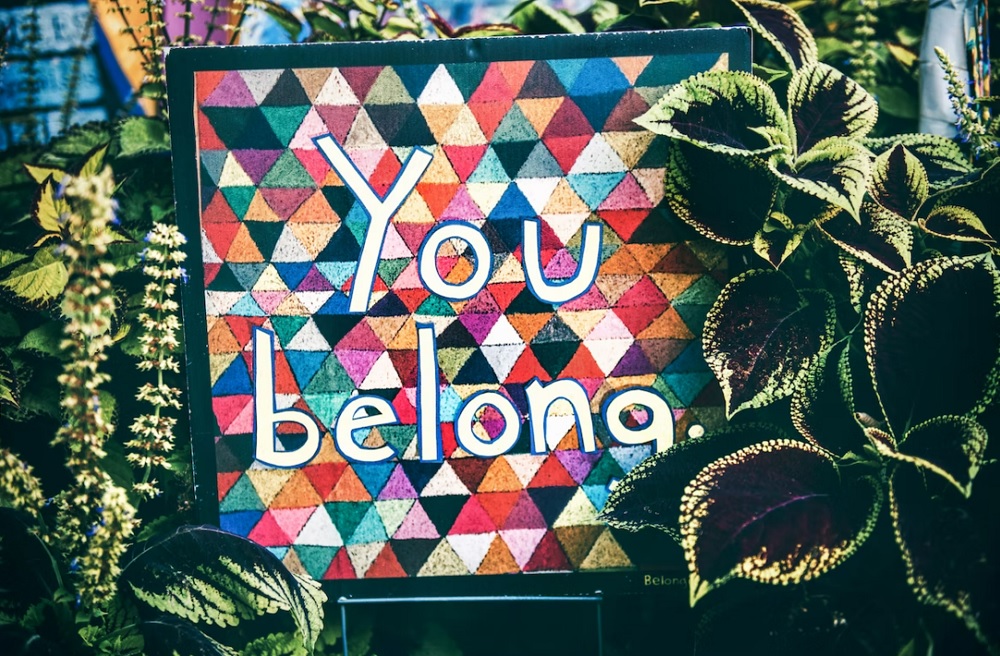Inclusion is a hugely important topic in all organisations at the moment. We’ve rounded up the latest resources we’ve come across on this topic, covering everything from healing from racial trauma to resources to guide your practice and podcasts which explore inclusion from a global perspective.
First up is Right Within: How to Heal from Racial Trauma in the Workplace by Minda Harts. One of our team read this recently and they have found it invaluable in beginning their journey towards recovering from past racial trauma. The book defines how racial trauma can come in all kinds of forms for women of colour in the workplace, from microaggressions to more serious incidents. Harts sets out the scale of the challenge and also explains actionable ways to deal with it. Our colleague reported that it helped them enormously and empowered them with strategies to deal with any racism they may experience in the future.This isn’t just a book for women of colour though; it should be read by leaders so they can create more inclusive workplaces.
Bringing it back to inclusion in the third sector, I was delighted to speak at the launch of NCVO’s Road Ahead 2023 report, a series of thought pieces on the key trends that will impact charities and volunteers this year. I found the piece on equity especially thought provoking. NCVO urge charities to maintain inclusion as a priority, signposting to valuable sources of data. The piece prompts charities to think creatively about how they can reach more diverse audiences through the platforms and media they use, looking beyond the filter bubbles we can all sometimes find ourselves in.Inclusion was also a key theme of the Road Ahead launch event, and you can watch the recording of it here.
Our associate consultant Suzy Christopher, co-founder of Untapped, an inclusive comms and marketing agency rooted in disability inclusion, recommends the following to help you develop inclusive and accessible communications. A first step towards accessibility is to write in plain English. In addition, Suzy suggests these resources:
- Microsoft provides useful guidelines for making Word, Excel and PowerPoint documents accessible.
- The Web Accessibility Initiative provides detailed information on creating accessible video and audio content.
- AbilityNet runs training courses aimed at helping organisations to build accessible digital products and services.
- Untapped creates inclusive and accessible digital publishing guides and checklists for marketing and communications teams.
Trans inclusion has been in the news a lot recently and it’s important to remember that beyond the headlines there will be many trans people who need more support in the workplace. According to Stonewall, a third of trans employees (34 per cent) have been excluded by colleagues for being trans. So what can charities do to improve this? One of the charity CEOs we work with said that he had found Stonewall’s guide to getting started with trans inclusion in the workplace very helpful. It’s full of useful, practical advice.
Finally, our team loves a good podcast. The informal nature of this medium can be a good way into difficult conversations. I’m a big fan of the Daily Show’s Beyond The Scenes podcast, which covers topics inspired by the US based satirical current affairs programme. It features an eclectic mix of content, seen through the lens of how inclusion shows up in different aspects of society, from campaigning to sports to drag. Its humorous approach engages the listener with big, challenging issues whilst also being incredibly informative.
As a woman of colour, I also like the wide ranging conversations about race from across the globe on the podcast Code Switch, touching on everything from pop culture to history and food.If that leaves you hungry for more podcast content about inclusion, it’s a topic that we discuss frequently on our own podcast Starts At The Top, such as in this conversation with Tree Hall, CEO of Charity IT leaders about what it’s like to be a neurodivergent CEO.
We hope this has given you food for thought about inclusion in 2023. Which resources would you recommend?

